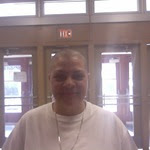Quality Education: Teacher Education
I used to blog for my old company, but they took the blog down. I am
not actually allowed to own the writings I put up on that blog, but as
I reference them on occasion in my writing I am putting those articles
up in my archives here for reference sake. I'll put the tag GS on those
articles noting that they were originally published on the http://schoolfinder.globalscholar.com/blog/
Quality
Education: Teacher Education
June
30, 2008 – 4:38 am by Brendan
In my writings about
improving teacher quality I’ve mentioned that the easy “fix”
for education is to start with raising starting
teachers
pay
and
making it easier to fire
teachers (within reason of course). The next easy step is to improve
the quality of our educators.
I know I said the
first step of raising pay is supposed to give us better teachers.
This is true in that increased pay would encourage the best students
to enroll in teacher education programs. It will also mean more
people will enter teacher education programs allowing the programs to
become more stringent. However, this just means you will have book
smart people coming out of the teacher education programs.
To improve teacher
education programs to the best they can be I think education needs to
follow the model of medicine and institute a residency program.
Currently, teachers are required to observe teachers in action and
take one semester of student teaching. This equates to at the most 3
or 4 months of classroom experience.
I’ve worked a lot
of jobs in my life, but teaching is the only job where I was in
charge of 30 or more people on the first day. Before that first day I
read a lot of good books, listened to experienced teachers, and asked
a few questions, but none of it really prepared me for that first day
of school. In the classroom, unlike any other profession in the
world, a bad first day can ruin the entire year. Yet, most teachers
never even see an experienced teacher’s first day much less get to
practice setting up classroom expectations.
For those who
stopped listening after I suggested that we should raise teacher pay
to $60,000
a year for beginning teachers you can start listening again. Now that
first year will be after 4 years of college and two years of
residency. (A few years after that and they can be considered master
teachers and start mentoring new teachers.)
During the first
year of residency the new teacher would be paired with a master
teacher. Master teachers would be experienced and come with
recommendations from parents, colleagues and administrators, as well
as having some specific training in mentoring new teachers. Not every
teacher would become a master teacher, but most who wanted to should
be able to with out much trouble.
In that first year
the master teacher would take the most important days like the first
day and set up a quality environment that allows for quality
teaching. Then through a combination of team teaching, observation,
example, writing, and reflection and other strategies the master
teacher would really get into the details of what works, when, and
why.
The second year the
new teacher would take over the majority of the duties in the
classroom and the master teacher would mainly observe and be a
resource. At this point the master teacher could be paired with
several new teachers instead of the one to one ratio or first year
teachers. This could and probably should go on for up to three years.
If this sounds like
a waste of resources and way too much time spent training someone to
manage a classroom and teach basic skills you may be right. The point
is that education is more than managing a classroom or drill
practice. Early on in education learning basic skills is very
important, but as students mature their education needs change. As
students build the capacity to understand more abstract concepts they
need to learn more about concepts that can be applied to more than
one situation.
This isn’t to say
that students in primary grades are easier than older students. Often
the opposite is true. Often the younger grades require the best pure
educators. While primary grade students are building basic skills
that are the building blocks for later years, how they learn these
skills is very important. Younger students not only need to build a
set of basic skills they also need to learn basic skills necesary to
be successful in the classroom.
The long residency
period though is not so much for the new teacher to practice
teaching, though that is important. It allows the new teacher the
chance to see research in practice. This time gives the new teacher a
chance to discover how to find the correct balance between building
skills and letting students figure it out on their own.
I don’t know any
business that would let a kid fresh from college run an entire
office, so why should education be any different? Let’s ease
teachers into the the awesome responsibility of managing dozens of
people at once. With a bit of help and support we might not lose half
of our new teachers in the first 3 years.

Comments